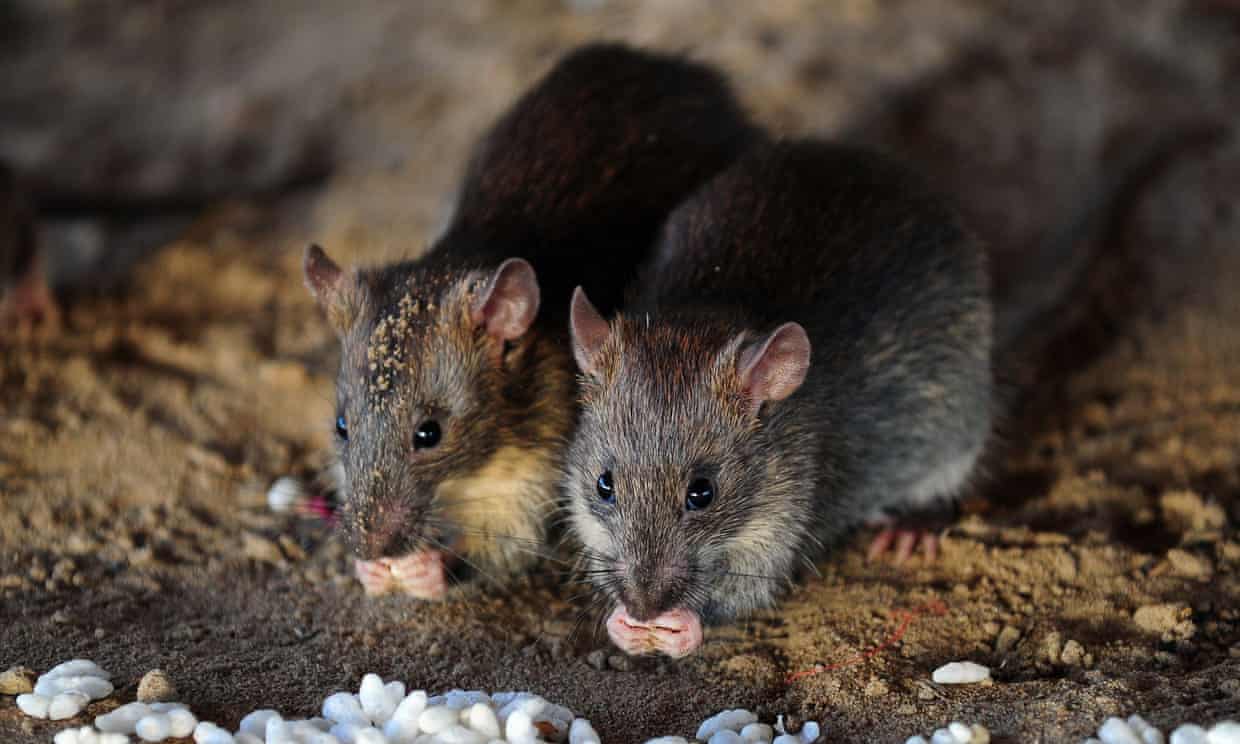
Sydney
Sydney braces for rat ‘plague’ after Covid-19 forces hungry rodents to turn to cannibalism
Suburban rat infestations surge after city-dwelling rodents run out of food
by Naaman ZhouEmpty offices and restaurants in the city of Sydney are driving hungry rats into homes and suburbs, and the loosening of restrictions could create “a new rat plague”, according to a leading rat-catcher.
As city centres have closed due to the Covid-19 pandemic, suburban rat infestations have spiked, according to Geoff Milton, a Sydney rat-catcher with 35 years’ experience.
Rats naturally seek out houses during winter, and the sudden drop-off in food and rubbish in our cities is exacerbating the problem. Calls about suburban rats have risen 30% compared with the same time last year, Milton told Guardian Australia.
In the US, the Centers for Disease Control and Prevention have also warned that New York rats had become more “unusual or aggressive”, and began eating each other due to a lack of food.
Prof Peter Banks, a rodent expert from the University of Sydney, said the same thing had already happened in Australia.
Banks said that cannibalism would have happened “within days” of our restrictions being enacted, as city-dwelling rats ran out of food.
“We locked down and stopped using the city and closed restaurants quite rapidly, and that was quite long ago,” he told Guardian Australia. “The rats have to eat immediately, so this would have happened days after, because the rats are so food stressed.
“They are so dependent on our garbage and our spilt food. The rats we have in the centre of Sydney are the same species as in New York … They are wholly dependent on us. If they produce babies they can’t support, they kill them. Or one of their relatives comes in and kills them.
“They will eat other rats that die, for sure. It’s hard to say whether they will go and kill another rat. They will not let a meal of another rat go by.”
Milton said this had driven rats into new areas.
“They have moved into the suburbs, closer to residential now,” he said. “We are having a big spike in residential rodent control.
“It’s got colder quicker this year as well. It is coming on to winter where they need somewhere warm to sleep. They usually get into roof voids in people’s houses, because they can climb up brick walls or they can leap from overhanging trees above peoples’ houses. They can leap about three or four foot.”
However, Banks said that people should not worry about hordes of rats in their homes, as the overall rat population would have dropped under lockdown.
“Rats are probably the big losers from Covid-19,” he said. “The rat population would have been knocked down a lot. It will probably be a pretty typical winter. There are not going to be waves of rats running across the suburbs trying to get into people’s houses.
“But people will be seeing them in houses now, because that is the only place where there is food. If we leave bins out , they will thrive off that.”
Both he and Milton predicted city rat levels would swiftly rebound once offices and restaurants opened again, and people went back to work.
“They respond to food within days,” Banks said. “If you give them a burst of food, that can turn into babies in three weeks’ time, no worries. They usually go through a winter lull, so that is not normally their breeding time. But if we are out in springtime or late winter, out there spilling food, they will be there to exploit it.”
Milton agreed.
“There will probably be a new plague of rats take over the city,” he said. “But a lot of the ones that are left unattended in suburbia will stay there. They usually eat dog food and all that, because people leave dog kibble out all night. They’ve got ready made meals really.”
Banks said that rats would “be back”.
“What they do is, the adults just stop having babies. The mortality rates will go up, but there will be survivors. There will be some who get by. Those will keep the population going, so once the garbage comes back, those survivors will repopulate the urban rats again. Breeding will go up, they will have bigger litters. They’ll be back.”